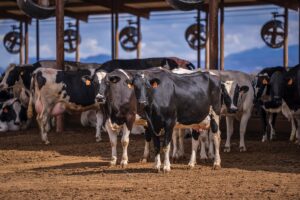Food waste is a major global issue, with an estimated one-third of all food produced going to waste. Insects such as crickets can play a significant role in reducing food waste by being used to repurpose food that would otherwise go unused.
Crickets are able to consume a wide range of organic matter, including food scraps and agricultural waste. This makes them an ideal candidate for repurposing food waste and turning it into a valuable source of protein.
Insect farming can be done on a small scale and in urban areas, making it an accessible option for repurposing food waste locally. Additionally, insects such as crickets require significantly less water, land, and feed than traditional livestock, making them a more sustainable option for repurposing food waste.
By using crickets to repurpose food waste, we can reduce the amount of waste sent to landfills, where it contributes to greenhouse gas emissions. Instead, we can turn that waste into a valuable source of protein that can be used to supplement our diets and reduce our impact on the environment.
Crickets can play an important role in reducing food waste by being used to repurpose food that would otherwise go unused. Insect farming is a sustainable and accessible option for repurposing food waste, and by doing so, we can reduce our environmental impact and create a valuable source of protein. As awareness of the benefits of using crickets to repurpose food waste grows, it is an exciting time for sustainable and innovative solutions to address global food waste.

The history of eating insects and how crickets have been consumed in different cultures
The practice of eating insects, known as entomophagy, has been around for centuries and is still a common practice in many parts of the world.



